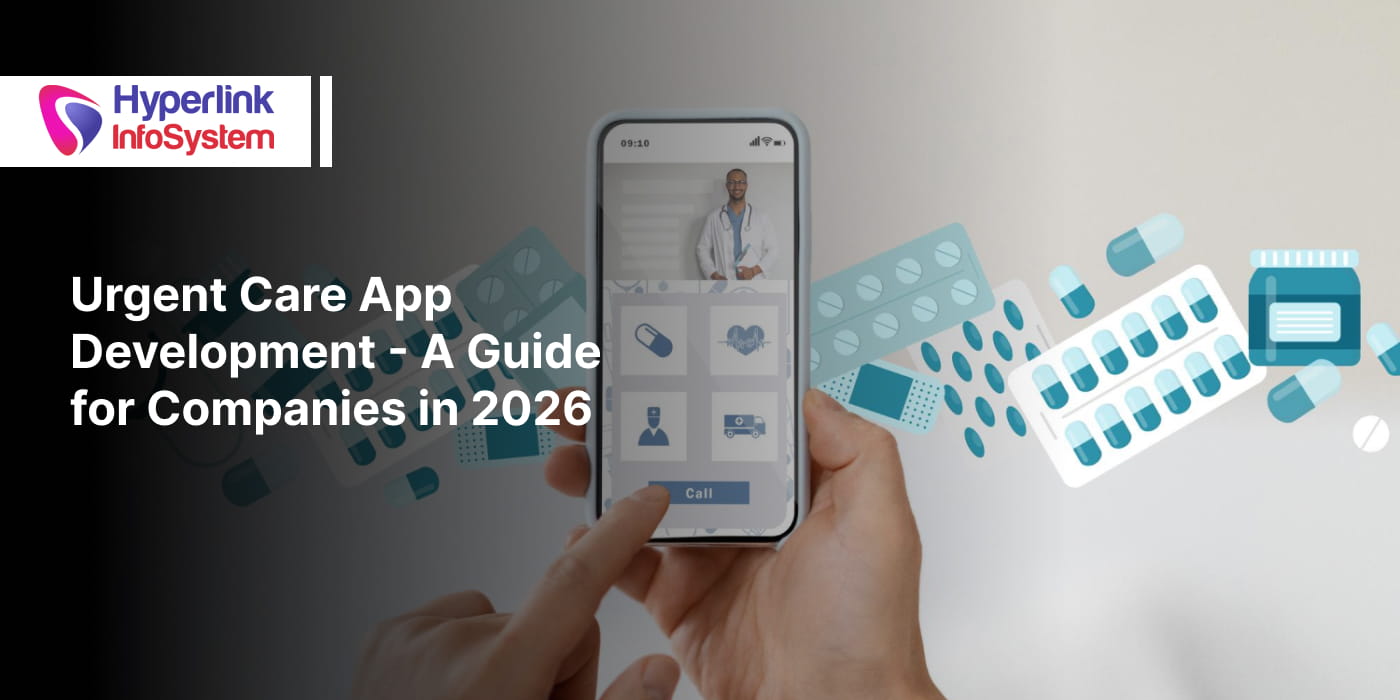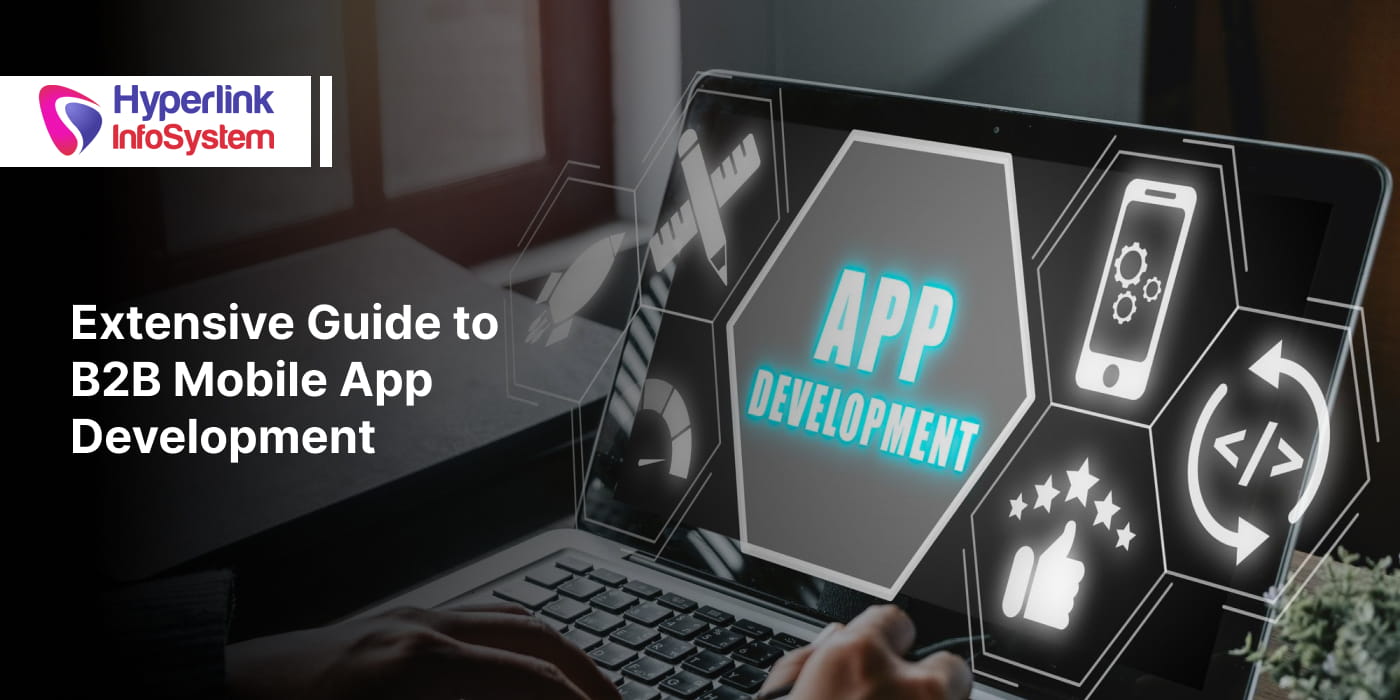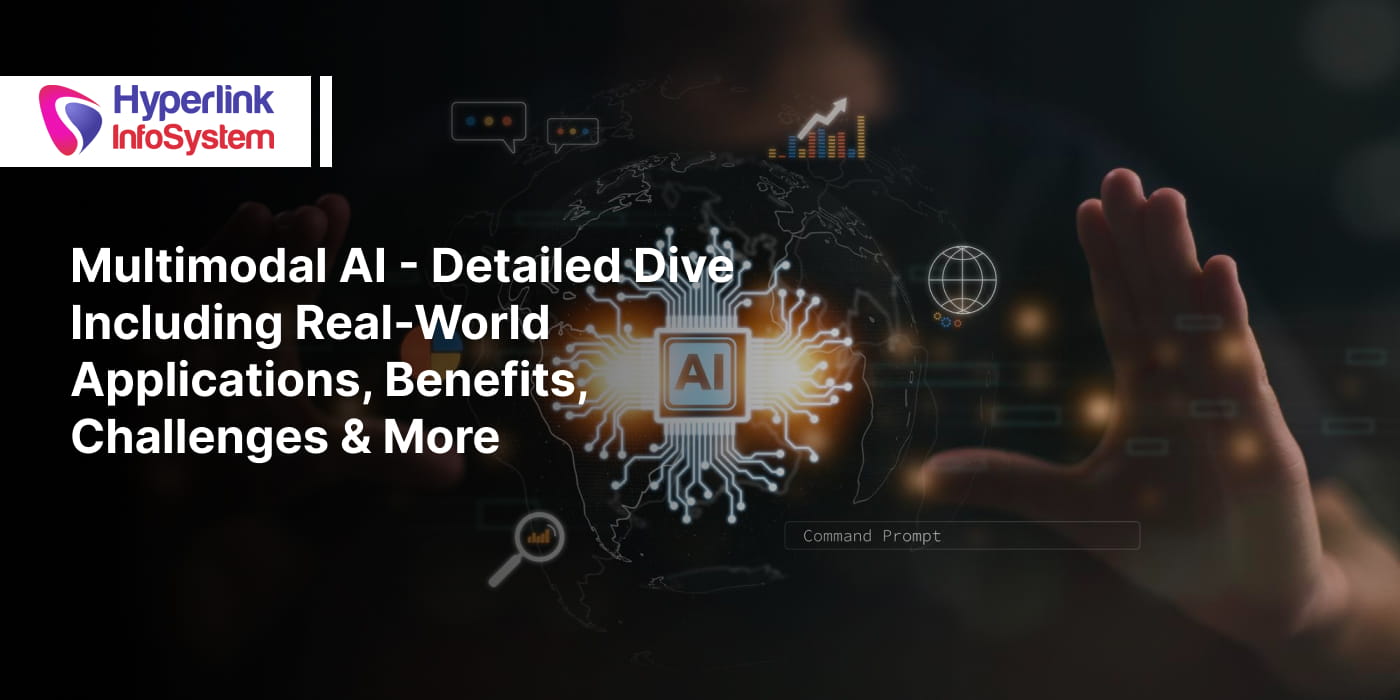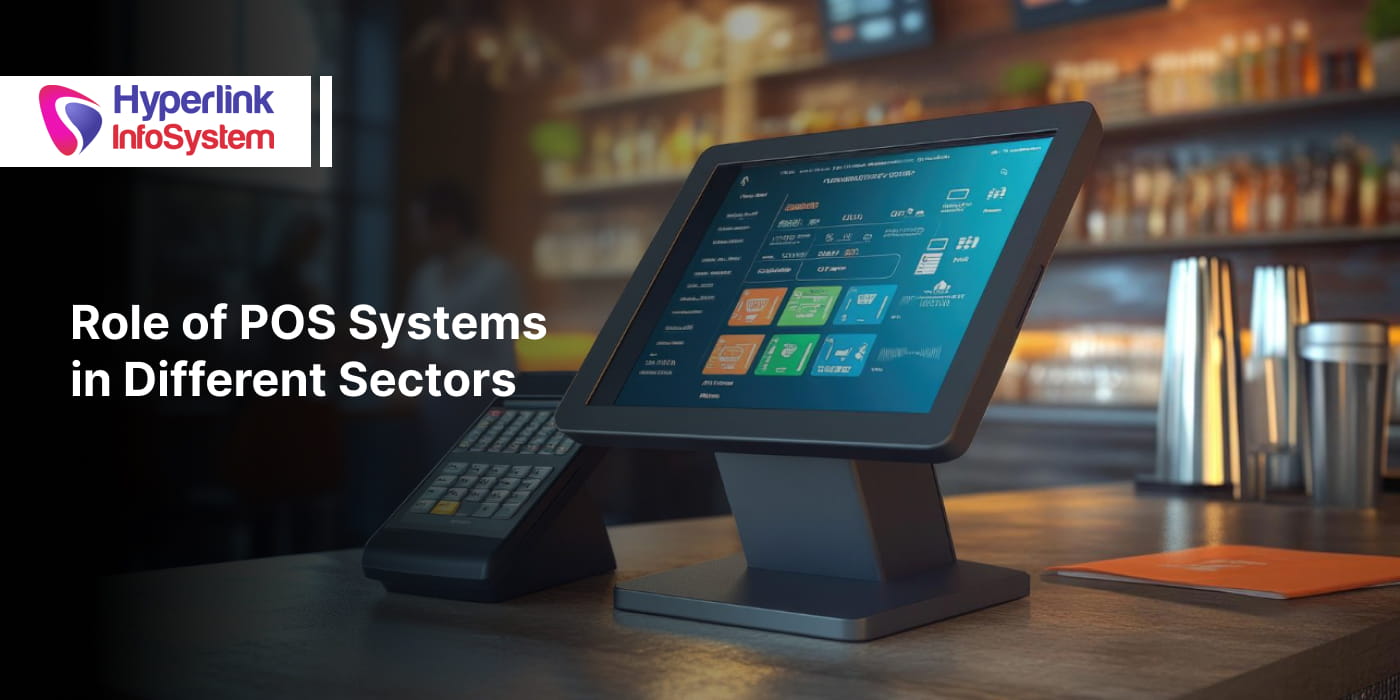AI Agents in 2025: A Comprehensive Review and Future Outlook
Jun 2025
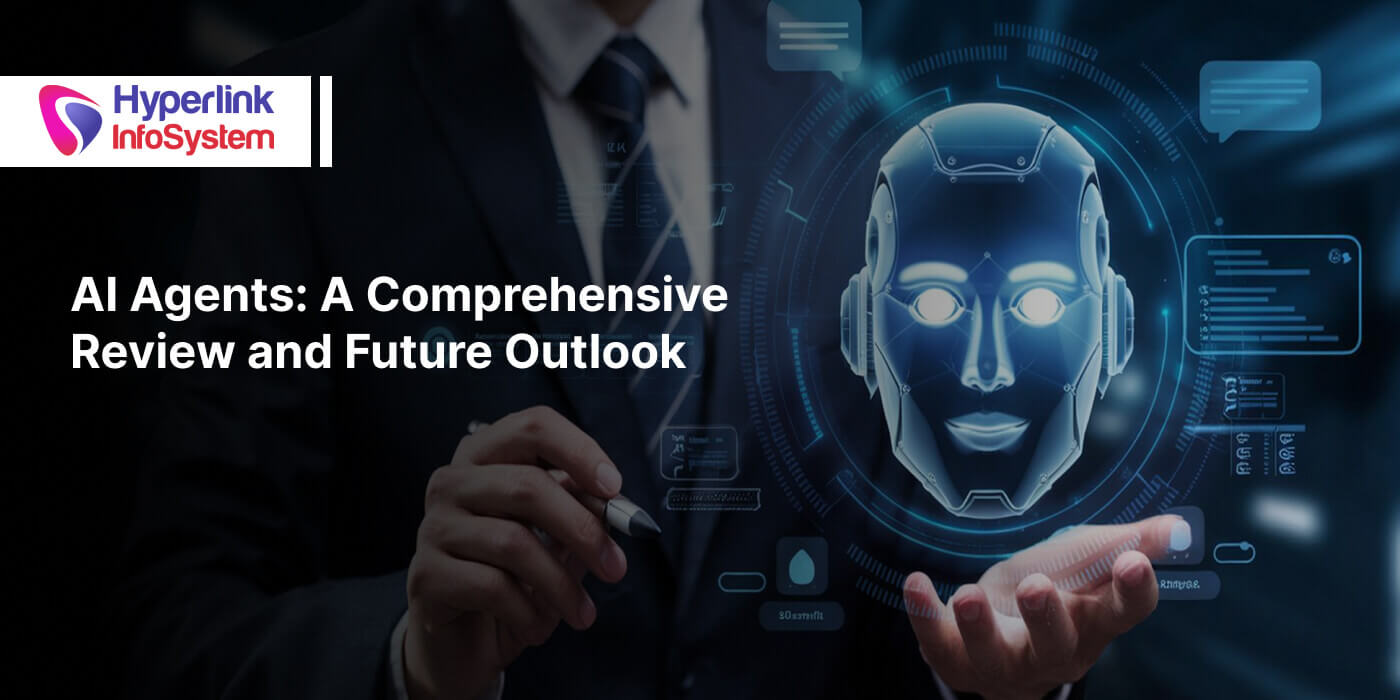
By 2025, AI agents will be transforming human-machine interaction by automating customer interactions and making key decisions in milliseconds. Today, AI agents have evolved into context-aware, task-oriented, intelligent entities that can transform every consumer interaction; we are no longer talking about chatbots or virtual assistants. It is now essential for companies planning digital transformation to understand the evolution of AI agents.
In this detailed guide, we look at the situation of AI agents in 2025, their main functions, the latest developments, how they are transforming industries, and why companies are increasingly turning to leading AI development companies such as Hyperlink InfoSystem to achieve their AI objectives.
What Are AI Agents and Their Core Functions?
Before we jump into the big transformations happening in 2025, let’s take a step back and really understand what AI agents are, not just from a textbook definition but in a way that actually makes sense in today’s world.
Think of AI agents like highly intelligent assistants; the kind that don’t just follow orders but actively observe, learn, and make decisions on their own. These aren’t just programs running commands. They’re smart, adaptable systems designed to sense what’s going on around them, figure out the best course of action, and respond in real-time, all with minimal human intervention.
Whether you're talking about a chatbot answering customer queries, a self-driving car navigating traffic, or a recommendation engine curating your Netflix queue, AI agents are the silent engines powering those interactions.
So, what exactly do they do under the hood? Let’s break it down into their core functions, the very "agent function in AI" that makes them tick:
1. Perception
AI agents begin by perceiving their environment. This doesn’t mean seeing like we do, but collecting and interpreting data through sensors, APIs, user inputs, or other systems. For instance, a smart retail assistant might "perceive" customer emotions via facial expressions or tone of voice. In more technical terms, this could mean image recognition, speech processing, or interpreting sensor signals. The point? Perception is how the agent "knows" what’s happening.
2. Decision Making
This is where the magic happens. Based on what it perceives, the AI agent decides what to do. This could involve using a simple set of rules or complex algorithms like neural networks or reinforcement learning. In 2025, decision-making capabilities have gotten far more sophisticated, thanks to improvements in deep learning and contextual reasoning, AI agents don’t just react; they weigh options, predict outcomes, and adapt in milliseconds.
3. Actuation
Once a decision is made, the AI agent doesn’t sit on it; it acts. Whether it’s sending a message, moving a robotic arm, updating a database, or changing an app’s interface, actuation is about implementation. It's what bridges thought and action. For example, a virtual assistant may go from interpreting your request (“Book me a cab”) to launching the ride-hailing app and completing the task on your behalf.
4. Learning
If there’s one thing that separates today’s AI agents from earlier versions, they can learn. Through interaction, feedback, and massive data cycles, they constantly improve their understanding and behavior. Think of it like a junior employee who quickly becomes an expert, but in this case, the learning curve is machine-fast. Thanks to tools developed by leading artificial intelligence development companies, agents can now fine-tune themselves on the fly, without waiting for a manual update.
So, What’s Different in 2025?
In the early days, AI agents were usually single-purpose. You had one bot for customer support, another for analytics, and maybe a separate one for managing emails. But in 2025, we’re entering the age of multi-capable AI agents. They’re able to work across tasks, understand intent beyond keywords, and even initiate proactive interactions, something that was nearly impossible just a few years ago.
These changes stem from the evolution of multimodal AI, real-time data processing, and more intuitive natural language understanding. AI agents today don’t just follow your commands; they anticipate them, collaborate across systems, and sometimes even think two steps ahead of you. From healthcare bots to fintech assistants, these next-gen AI agents are driving meaningful engagement and transforming every customer touchpoint.
Latest Developments in AI Agents in 2025
AI agents in 2025 are nothing short of revolutionary. Here are some latest developments in AI agents that are shaping the future:
1. Autonomous Collaboration
Modern AI agents can collaborate with each other across departments, devices, and even organizations. This form of "agent mesh networking" enables a supply chain agent to sync with a customer service agent, ensuring inventory is updated as soon as a customer makes a request.
2. Emotion-Aware Interfaces
Using emotional AI, these agents can now detect a user’s sentiment and tone. For instance, if a customer expresses frustration during a support call, the AI adjusts its tone, escalates the query, or offers a more empathetic response.
3. Edge AI Deployment
AI agents no longer rely solely on the cloud. They're being deployed on edge devices for real-time processing, whether it's a drone scanning crops or a wearable device guiding a fitness routine.
4. Personal AI Agents
These are agents trained on individual user data to deliver hyper-personalized experiences. Think of them as your AI twin, managing schedules, filtering information, and even negotiating on your behalf.
5. AI Agents with Memory and Reasoning
Today’s agents can remember past interactions, analyze long-term trends, and reason contextually. This makes them far more effective in roles like HR, finance advising, and medical diagnosis.
Key Business Transformations Through AI Agents
AI agents are no longer tools; they are becoming partners in decision-making. Here's how they are enabling key business transformations through AI agents:
1. Customer Experience Enhancement
AI agents in 2025 are transforming every customer touchpoint, from automated yet deeply human-sounding support calls to real-time personalization in eCommerce. Businesses can now maintain a 24/7 customer presence, improve satisfaction, and scale effortlessly.
2. Operational Efficiency
AI agents are optimizing workflows, predicting maintenance needs, and managing workforce scheduling. Manufacturers, logistics firms, and even healthcare providers are seeing significant cost reductions and productivity boosts.
3. Intelligent Decision Support
Decision-makers now rely on AI agents to analyze vast amounts of structured and unstructured data, identify insights, and recommend strategic actions with surprising accuracy.
4. Hyper-Personalized Marketing
AI agents analyze customer behavior in real time to tailor marketing messages, offers, and products. This has improved conversion rates and ROI for digital marketing teams.
5. Risk and Compliance Automation
Banks and financial institutions now use AI agents to detect fraud, monitor transactions, and ensure compliance with global regulations, significantly reducing human error.
Future Outlook: What to Expect in the Next 5 Years
Although 2025 AI agents are already transforming all consumer interactions, from financial automation to personalized retail, the future is even more fascinating. The present is merely just a start.
We envision a future where AI agents evolve from task-specific assistants to completely integrated, decision-making digital companions within the next five years. The next generation of AI-driven systems will be influenced by a series of emerging themes as leading AI development companies continue to come up with innovative ideas.
Here’s what’s coming down the line:
1. Global AI Agent Regulations: Building a Safer, Smarter Future
As AI agents become more autonomous, the conversation around ethics, data protection, and decision accountability is getting louder, and rightly so. Governments, tech coalitions, and global institutions are already working on frameworks that aim to regulate how AI agents behave, what data they can access, and how their decisions should be audited.
Harmonised global laws that ensure the security, fairness, and transparency of AI systems are expected. Regulations have to be transparent, especially in areas such as healthcare, finance, and jurisprudence where AI has a significant influence on decision-making.
Organisations that want to embrace this technology will have to have a robust artificial intelligence development firm backing them to stay compliant and future-proof.
2. Agent-to-Agent Marketplaces: The Dawn of Digital Negotiators
Here’s something truly futuristic: AI agents not just working for us, but also negotiating and transacting on our behalf.
Imagine your AI personal assistant bargaining the best available trip cost in real time by communicating with other agents who represent hotels, airlines, or car rental companies. These are smart autonomous agents that can negotiate, analyze offers, and seal deals on their own without your involvement. They are not scripted bots.
This concept, often referred to as 'agent-to-agent marketplaces', is gaining momentum fast. As APIs, AI architectures, and blockchain-based smart contracts mature, we’ll likely see entire ecosystems of AI agents operating in the background of business platforms. Key business transformations through AI agents will rely on this collaborative model to optimize speed, pricing, and efficiency across supply chains.
3. Generalist AI Agents: From Specialists to Swiss Army Knives
Currently, most AI agents are narrow specialists, great at doing one thing but clueless outside their domain. For example, a support chatbot can’t help you write code, and a code-writing agent can’t schedule your calendar.
But in the near future, generalist AI agents will rise, systems that can perform a wide variety of tasks without retraining or extensive reprogramming. Think of an AI agent that can research a topic, write an email, answer customer queries, and even manage your inventory, all without skipping a beat.
This evolution is being fueled by breakthroughs in foundation models, context-aware reasoning, and modular learning architectures. And the best part? These agents will become smarter the more they’re used, thanks to ongoing feedback loops and adaptive learning mechanisms built by expert AI developers.
4. Neurosymbolic AI: A Brain-Like Leap in Intelligence
Although deep learning has been the force driving the AI revolution until now, it has its limitations, particularly in reasoning, abstraction, and understanding cause-and-effect relationships. Enter neurosymbolic AI, a hybrid approach that takes the logical strength of symbolic reasoning and mingles it with the intuitive power of neural networks.
In other words, this implies that AI bots will be able to reason based on structured rules and knowledge alongside patterns. Visualize a legal assistant AI capable of understanding language and applying the rules to a case in a rational way, much like a human attorney.
This advance will greatly enhance AI's agent capability and unlock more accurate, reliable, and explainable decision-making. And it's a revolution for fields such as manufacturing, healthcare, and law.
So, What Does This Mean for Businesses?
The next five years will be less about “whether to adopt AI” and more about “how fast you can integrate smarter agents into your workflows.” Whether it’s automating support, enabling 24/7 operations, or improving decision-making, AI agents are shaping a new digital economy, one that’s intelligent, adaptive, and always on.
At Hyperlink InfoSystem, we’re not just watching these changes unfold; we’re helping drive them. As a best AI development company, we work closely with startups, enterprises, and global brands to build AI-powered ecosystems tailored to their industry, audience, and ambition. Whether you're looking to create autonomous customer service agents or build AI platforms that scale with your operations, our team of dedicated developers for hire and AI experts can make it happen.
The Role of AI Agents Across Industries
Let’s zoom in on how various sectors are leveraging AI agents:
Retail
- AI agents are personalizing user journeys and automating inventory management.
- Virtual fitting rooms and conversational shopping bots are commonplace.
Read more: AI in Inventory Management 2025: A Detailed Guide
Healthcare
- From diagnostic assistants to virtual nurses, AI agents are reducing wait times and improving care.
- Predictive healthcare agents alert patients and doctors about potential risks.
Finance
- AI agents perform sentiment analysis to guide investment strategies.
- Robo-advisors offer customized financial planning with real-time market data.
Education
- Personalized tutoring bots adapt lessons to student performance.
- AI agents assist educators by grading, analyzing engagement, and flagging issues early.
Manufacturing
- Smart agents optimize supply chains, perform predictive maintenance, and manage robotics.
- Human-AI collaboration on factory floors is becoming the norm.
Why AI Agents Are Crucial for the Future
Every business will require smart automation in the future to remain competitive. AI agents are the building blocks of systems that are future-ready, irrespective of company size. They enable improved decision-making, reduce operational chokepoints, and liberate businesses to focus on strategy and innovation.
That’s why forward-thinking brands are actively looking to hire dedicated AI developers or collaborate with the best AI development company to stay ahead.
Why Businesses Choose Hyperlink InfoSystem for AI Agent Development
When it comes to crafting intelligent, scalable, and business-specific AI solutions, Hyperlink InfoSystem stands out as a top artificial intelligence development company. We help businesses integrate AI agents that aren't just smart but strategically aligned with their goals.
Here’s why organizations around the globe trust us:
- Custom AI Agent Solutions: Built specifically for your business needs.
- End-to-End Expertise: From data modelling to deployment.
- Future-Proof Architecture: Scalable, modular, and secure.
- Ongoing Support & Training: We ensure your team can fully leverage AI capabilities.
- Global Experience: Recognized among the best in AI implementation across various industries.
Conclusion
AI isn’t a luxury anymore; it’s your next competitive edge. Whether you're exploring automation or planning to revolutionize customer experiences, Hyperlink InfoSystem is your ideal AI development company. Let us help you explore the potential of AI agents tailored to your business.
Frequently Asked Questions
AI agents today offer instant, personalized, and human-like responses across support, sales, and service. They analyze tone, behavior, and preferences to create seamless experiences.
Chatbots follow scripted flows, while AI agents can perceive, decide, learn, and act autonomously. They’re proactive and far more adaptive.
Virtually all. But especially retail, healthcare, manufacturing, finance, and education are seeing major gains in productivity and personalization.
Start by partnering with a trusted artificial intelligence development company like Hyperlink InfoSystem. We help identify the right use cases, develop scalable solutions, and support you post-deployment.
Experience in ML models, NLP, data engineering, and domain-specific knowledge. That’s why businesses turn to companies with verified expertise like Hyperlink InfoSystem.
Latest Blogs

Is BlockChain Technology Worth The H ...
Unfolds The Revolutionary & Versatility Of Blockchain Technology ...


IoT Technology - A Future In Making ...
Everything You Need To Know About IoT Technology ...

Feel Free to Contact Us!
We would be happy to hear from you, please fill in the form below or mail us your requirements on info@hyperlinkinfosystem.com
Hyperlink InfoSystem Bring Transformation For Global Businesses
Starting from listening to your business problems to delivering accurate solutions; we make sure to follow industry-specific standards and combine them with our technical knowledge, development expertise, and extensive research.
4500+
Apps Developed
1200+
Developers
2200+
Websites Designed
140+
Games Developed
120+
AI & IoT Solutions
2700+
Happy Clients
120+
Salesforce Solutions

40+
Data Science












